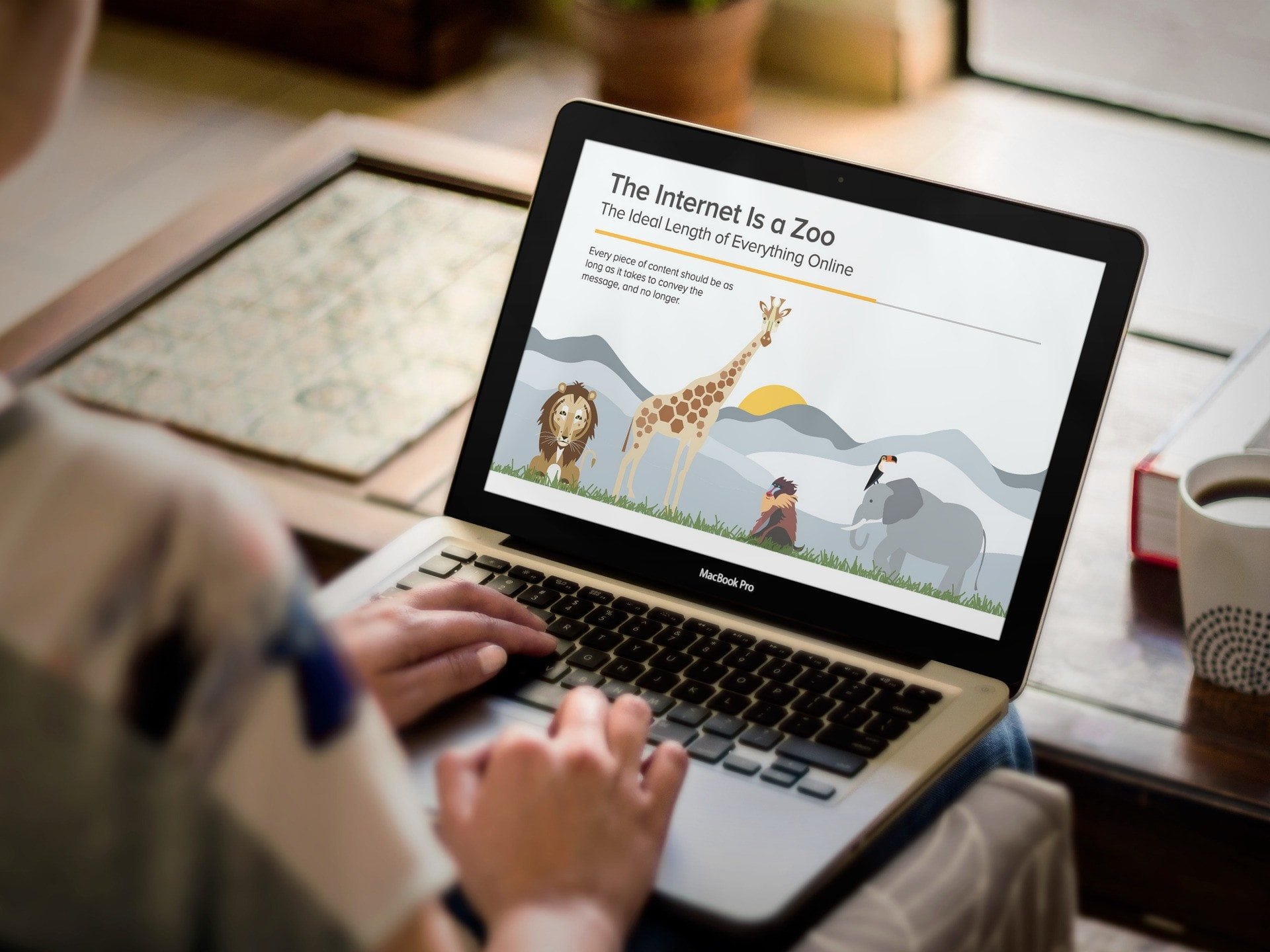Research - Page 2
A collection of posts on Research
If you search for information on how Facebook’s Newsfeed algorithm treats posts from 3rd party publishing apps, you’ll find plenty of content suggesting that reach and engagement will be lower through 3rd party posting. As a subject very close to our hearts here at Buffer, we wanted to dive in and share our own thoughts and experiences in this area. The TL;DR version, is that posts from 3rd tools are not penalized and will perform just as well as posts shared natively to Facebook. If you’d li
Whenever I get asked what my favorite book is, I always reply The Pirates Dilemma. The book tells the story of punk, disco, hip-hop, graffiti, and how modern technology has made the ideas and innovations of youth culture increasingly intimate and increasingly global at the same time. It’s truly fascinating. And when you look back, you can see the origins of the current social media revolution can be traced as far back as the 70’s (if not even further). Back in the 70’s punk was the start of
Given 140 characters, how can you make the absolute most of every single word, hashtag, and link in a tweet? We’ve been excited to test and experiment with answering that question by trying out headline ideas, power words, psychology, science, and more. Now we’re happy to share the quantitative numbers—based on 1 million tweets from Buffer users—about what seems to drive the most clicks, retweets, and engagement on Twitter! tl;dr The top takeaways from Buffer’s study on ideal tweets We’ll
How much more memorable are visuals compared to text? One oft-referenced answer is that people remember visuals 6 times better than text—an answer referenced in Buffer’s article on the anatomy of a perfect blog post and an answer that led to the original research, it’s clear that pictures are more memorable than words. So the next question became: People remember visuals better than text. But which visuals exactly? I’ve spent some time collecting the best research and science on pictures, ima
How do the best-performing Facebook pages get all that amazing engagement? And how can you and I do the same? The Facebook pages that are doing wonderfully well with likes, shares, and comments on their posts have so much to teach about new tactics and worthwhile strategies. Our friends at BuzzSumo analyzed 500 million (!) of these Facebook posts, and we’ve learned some amazing takeaways that you can implement on your page today. (I’ll be joining BuzzSumo’s Steve to chat with you live about t
What makes you stop scrolling through an article, open up a social media app and hit the share button? Is it logic, emotion, or something else? Turns out, there’s more to social sharing than just measuring metrics: Psychology. The strange nature of our brains is the reason we hotly debate the color of a dress or why we freely and emotionally share a post by a grieving widow after the death of her husband or why we feel an urgent need to pass on that video of the ice-cream eating dog to our an
On April 8, 2011, Blake Mycoskie, the founder of TOMS shoes, did something radical: He asked everyone to go barefoot for a day. One Day Without Shoes is now a yearly campaign dedicated to educating the world of how many children in developing countries grow up barefoot and without shoes, putting them at risk of infections and diseases. TOMS already donates one pair of shoes to a child in need for every pair of shoes it sells. This year, the company took it one step further. For every photo of
I love to see new stats and research about how to best share to social media. If it’s research-backed or numbers-driven, sign me up. These actionable tips are what drive a lot of our experiments at Buffer as we’re keen to see if the best advice from these studies meshes with our experience, too. And there’s a lot of new info to go off of. I’ve collected 10 of the latest surprising, revealing studies on social media here in this post, with takeaways and insight into social media timing, Instag
I have a confession to make: I’m a grown woman who peppers pretty much every text and social media post I send with smileys, hearts, stars and various other decorations. Emojis have taken over my communication—and I’m far from alone. According to Swyft Media, 74 percent of people in the U.S. regularly use stickers, emoticons or emojis in their online communication, sending an average of 96 emojis or stickers per day. All this adds up to a total of 6 billion emoticons or stickers flying around
There are a stunning amount of social networks out there, offering some inventive, engaging ways for people to connect and share with one another. Which ones should you be on? Beyond the big six networks—Facebook, Twitter, LinkedIn, Google+, Instagram, and Pinterest—there are dozens more that are quickly rising in usage or are super valuable for particular audiences and niches. It’s a ton to keep track of. It can be a mystery to know where to spend your time. I pulled up some numbers on these
Have you heard the good news? You can now share, schedule and measure your Pinterest Pins through Buffer! Buffer Awesome and Buffer for Business customers can: * Pin from anywhere on the web, or upload your own image * Create a variety of unique daily Pinning schedules customized just for you * Track and measure repins, likes, and comments Anyone can try out this fun new feature! Authorize your Pinterest account now and try scheduling to Pinterest for 7 days free: In honor of this
So much of digital marketing these days is about producing high-quality content that gets published and shared. You can control the publishing part. Can you control the sharing part? Sharing begins with promotion—the timing, targeting, and strategy behind solid distribution. To achieve your social media benchmarks, you need to understand what type of content will resonate in specific verticals, and when. Fractl recently partnered with BuzzStream to analyze 220,000 articles from 11 verticals

It seems like a great portion of the social media research we do at Buffer often comes back to a few big questions for social media sharing. How do I get more followers? What should I share? When should I share it? And how often should I be sharing? Social media frequency is one that we’ve enjoyed experimenting with a lot at Buffer. How many times per day should we be posting? Is it different for individuals versus companies? I personally share to Twitter four times per day, and we share to
When it comes to social media, lately I’ve been surprising myself by how often I’m turning to LinkedIn. With the addition of LinkedIn Publishing, there seems to be more awesome content on the business social network than ever before. And I don’t think I’m alone. LinkedIn has more than 347 million users across more than 200 countries and territories worldwide. We’ve written before about some of the best practices to make the most of your LinkedIn marketing, but I’ve recently discovered even mor
Starting a new social media presence from scratch can feel like a big challenge. As I launch my own side project right now, I’m poring over my Buffer analytics as I start at the very beginning to build a following everywhere. Things look very different in these early days as compared to what it must feel like for big, established names who have thousands or millions of fans. Here on the Buffer blog, we’ve written about some great strategies to get your first 1,000 followers that I’ve been foll
Do you remember seeing your first emoticon? The first documented use of “:-)” dates back to 1982, when Scott Fahlman proposed that it be used as a “joke marker” on a message board for Carnegie Mellon University computer scientists. Here’s his Internet-changing message: “I propose that the following character sequence for joke markers: “:-)” Read it sideways.” Today, emoticons need a bit less explanation. As social media has grown (and character counts have shrunk), these pictorial representa
To help with the inevitable noise surrounding a new post on social media, Facebook, Twitter and Google+ allow you to pin a post to the top of your page or profile, giving new life to old content and providing a quick win to get your most important updates even more love. Pinning seems like a very useful feature to have—and a feature ripe for experimentation. What are the best practices for pinning a post to the top of a Facebook page or a tweet to the top of a Twitter profile? How much extra e
How does your audience decide what it wants to click, share, favorite, and purchase? Understanding a bit of behavioral psychology can go a long ways toward a better understanding of your audience and why they do the things they do on social media and on your website. There’s tons here for marketers to discover, and the psychology of human interaction can lead to some quick wins in the way you compose your social media updates and communicate online. I’ve collected 15 of my favorite psychologic
Why do you read the updates you read? Why do you browse the products you browse? There are hidden motivations behind a lot of the actions we take online, especially so with social media. The influence of friends and family has a big impact on what we click, view, share, and like. Researchers have discovered some specifics behind why friends impact us the way they do. These insights cover the way we interact and reciprocate, the time we spend online, and the buying decisions we make. It’s fasc

You post to your Facebook page, hoping you’ve hit upon something that works. How great would it be know that the post you just published had the best chance of maximizing clicks, likes, and comments. Facebook posts especially—given the dramatic dip in reach—can feel like a mystery. How do you create the perfect Facebook post? Does the perfect Facebook post even exist? I went looking for answers and came across a heap of best practices and examples of what goes into a perfect Facebook post. Ch

How long should my tweet be? Or my blogpost? Or my headline? I ask this question a lot. It seems that others do, too. Our first take on coming up with the ideal length of all online content proved quite useful for a lot of people. I’d love to see if I can help make it even more useful. Along with all the best tips on optimal lengths for tweets, blogposts, headlines, and more, I’ve added a few additional lengths to the list—the ones that came up most often in the comments of the last post, lik
You’ve been sharing to social media for some time now, and you’re synthesizing all the great advice out there about what to post, when to post, and how to measure. Awesome work. You’ve got the content part down pat. Now here’s the next layer: The emotion behind the social media update. What feeling does your update impart? How does someone feel when they read your update? These are big, ethereal questions, and significantly different than discovering great content and finding the best litera
The ideal length of a blogpost is six minutes and 1,500 words. So every blog post you write should aim for that golden, gooey length, right? Well, there’s a bit more to it than that. We love digging up the latest stats and best practices on how to share better on social media. And our findings are just that: General statistics and ideas on what might work best in practice. Many stats are jumping off points for you to test and iterate on what’s best individually and personally for your sharing.
Social media sites like Facebook and Twitter offer a unique opportunity to get close to people who are hundreds of miles away. You can share anything with anyone at any time. You can share. Does this mean that you should share? I’ve come up against this question many times, hovering over the Send button on a status update or considering what’s okay to share and what’s too private (or uninteresting). Where should the line be drawn? Should there even be a line? I’m happy to offer some of my th